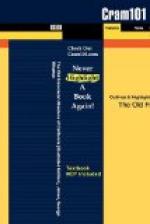In rendering a decision on the Warner’s Ranch Case the United States Supreme Court had an opportunity offered it, once for all to settle the status of all American Indians. Had it familiarized itself with the laws of Spain, under which all Spanish grants were made, it would have found that the Indian was always considered first and foremost in all grants of lands made. He must be protected in his right; it was inalienable. He was helpless, and therefore the officers of the Crown were made responsible for his protection. If subordinate officers failed, then the more urgent the duty of superior officers. Therefore, even had a grant been made of Warner’s Ranch in which the grantor purposely left out the recognition of the rights of the Indians, the highest Spanish courts would not have tolerated any such abuse of power. This was an axiom of Spanish rule, shown by a hundred, a thousand precedents. Hence it should have been recognized by the United States Supreme Court. It is good law, but better, it is good sense and common justice, and this is especially good when it protects the helpless and weak from the powerful and strong.
In our dealings with the Indians in our school system, we are making the mistake of being in too great a hurry. A race of aborigines is not raised into civilization in a night. It will be well if it is done in two or three generations.
Contrast our method with that followed by the padres. Is there any comparison? Yes! To our shame and disgrace. The padres kept fathers and mothers and children together, at least to a reasonable degree. Where there were families they lived—as a rule—in their own homes near the Missions. Thus there was no division of families. On the other hand, we have wilfully and deliberately, though perhaps without malice aforethought (although the effect has been exactly the same as if we had had malice), separated children from their parents and sent them a hundred, several hundred, often two or three thousand miles away from home, there to receive an education often entirely inappropriate and incompetent to meet their needs. And even this sending has not always been honorably done. Vide the United States Indian Commissioner’s report for 1900. He says:
“These pupils are gathered from the cabin, the wickiup, and the tepee. Partly by cajolery and partly by threats; partly by bribery and partly by fraud; partly by persuasion and partly by force, they are induced to leave their homes and their kindred to enter these schools and take upon themselves the outward semblance of civilized life. They are chosen not on account of any particular merit of their own, not by reason of mental fitness, but solely because they have Indian blood in their veins. Without regard to their worldly condition; without any previous training; without any preparation whatever, they are transported to the schools—sometimes thousands of miles away—without the slightest




